With unprecedented changes precipitated by technology in recent years, and the currently evolving changes impacting our working life due to the coronavirus, it’s easy to imagine that more businesses will soon embrace remote work as a permanent means of doing business.
According to a February report conducted by FlexJobs and Global Workplace Analytics, the trend toward working remotely increased by 159% nationwide between 2005 and 2017. As of February, five million Americans were participating in the remote workforce, according to their data. Today, millions more are testing the waters of remote work as we all practice social distancing.
Here at Hawaii Life, we’ve been working remotely since our inception in 2008. Our team has hardly had to make adjustments in recent weeks because we’ve been working from home all along. But we’ve seen evidence of this trend reflected in bookings for longer vacation rental stays in recent years. An increasing number of travelers have been taking longer trips and enjoying the perks of being able to stay connected to their professional life from here in Hawaii.
It may be possible for you to take advantage of this new trend with a stay in one of our longer-term vacation rental properties — once the current travel restrictions and need for social distancing are behind us, of course.
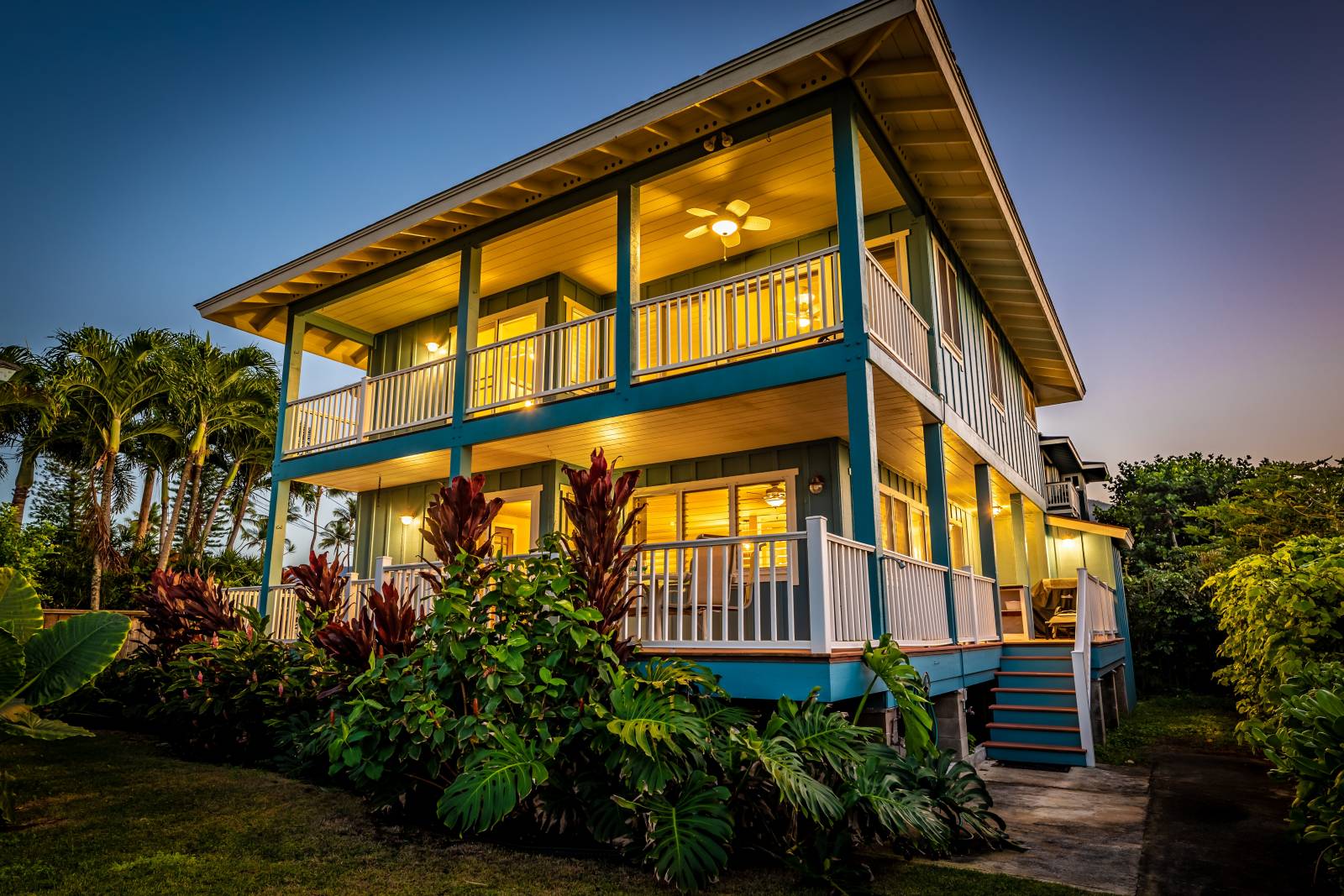
Laau Paina, a long-term vacation rental on Oahu’s North Shore.
Our Recent Collaboration with Japan Airlines
In December 2019, we collaborated on a project with Japan Airlines (JAL) that might change the way Japanese companies, in particular, think about work and vacation time. JAL hosted a unique working holiday experiment on the Big Island of Hawaii. The trip was organized by the MINDS, a cross-industry collaboration community.
The participants in the experiment stayed in Hawai‘i Life vacation rental properties. They included nine millennials from seven Japanese firms who visited Hawai‘i Island on a working holiday for three nights and four days. The young professionals included engineers, corporate salespeople, as well as planning and development staff.
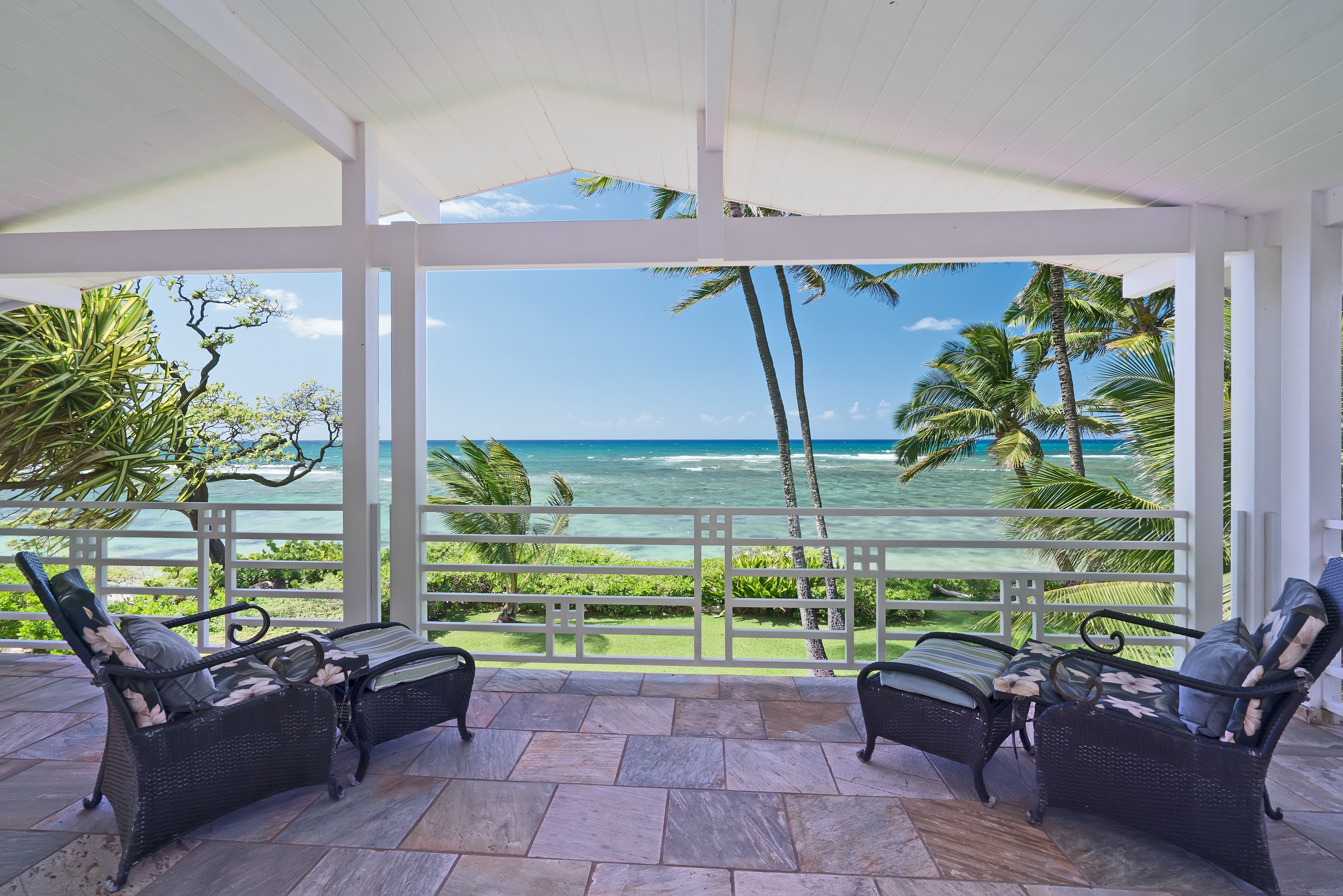
Modern Mokuleia Beachfront – a long-term vacation spot used by JAL’s team for a recent working Hawaii vacation.
What’s a ‘Workation’?
The idea behind a ‘workation’, as the project was dubbed, was for the team of connected professionals to keep regular office hours and conduct business as usual from a remote vacation destination. The participants were instructed to bring their usual workload on holiday to Hawai‘i. Employees were tasked with surveying their own work performance, productivity, and mental state throughout the experiment to determine the viability of such a program on a broader scale for Japanese companies.
Employees in the experiment worked alone at their laptops in a relaxed setting, shorts and t-shirts — with the sea breezes blowing and the nearby ocean beckoning. These sessions were broken up by the occasional group meeting around a dining room table or outside on the lanai. In lieu of regular vacation time held completely separate from work, they were told to strike a balance between work and vacation throughout their stay.
Everyone worked at their own pace. Participants took breaks to walk the beach. They held teleconference sessions and worked collaboratively on sofas (see pictures of their trip here). It’s a departure for a country that is notorious for its punishing work hours and formality in the workplace. The Japanese even have a word, karoshi, which means “death by overwork.” They, like Americans, are also renowned for not using their allotted annual vacation time.
Essentially, the experiment attempted to turn the concept of the working holiday on its head. Workation has attracted attention as part of a “work style reform,” notes the Japan Airlines website reporting on the results. Overall, the experiment saw positive outcomes in both productivity and enjoyment.
The goal for many companies was to determine if working holidays might replace the current paradigm of separating work and vacation time for several weeks each year. This experimental approach may result in Japanese companies sending entire teams on longer, more collaborative working holidays to nearby, convenient destinations like Hawai‘i.
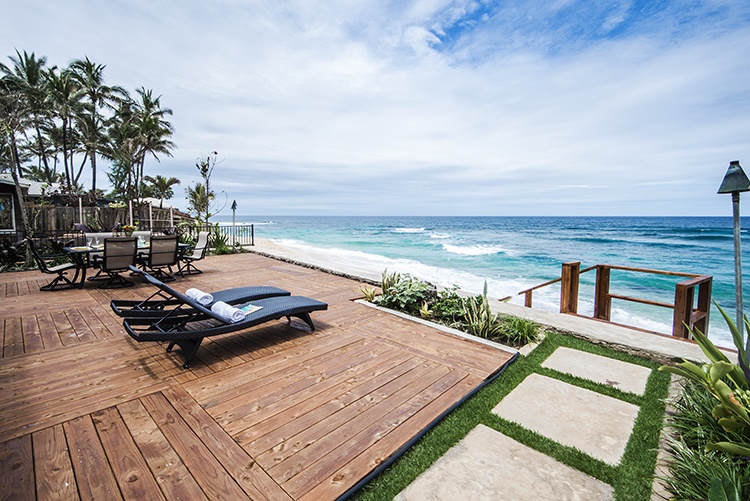
Blue Mahina at Sunset Beach – a beautiful, oceanfront Hawaii vacation home on Oahu’s North Shore.
30-Day Vacations
In recent years, both O‘ahu and the Big Island have passed legislation that requires homeowners with short-term vacation rentals (STVRs) to adhere to a 30-day minimum stay requirement if their property is located outside of designated resort zones. For most of the properties in our portfolio, this new rule hasn’t been an obstacle at all. New capabilities have resulted in the proliferation of remote work opportunities around the world for those wishing to combine their professional life with destination travel, and we’ve seen more of those types of travelers.
While it sometimes makes it hard to unplug in other ways, technology has made us more connected than ever before. Along with the ability to stay connected, we’re finding that the “30-day rule” has also encouraged travelers to enjoy more extended vacations in the islands. While not all of our guests work full-time on their extended Hawaii stays, they’re able to check their email and stay in touch.
The world of work has changed dramatically due to technology. Where and how we work is evolving at a rapid pace (almost daily!) — especially as we all navigate the impacts of the coronavirus. Longer working holidays and new work paradigms may become the norm, once the dust settles on the current public health crisis we are facing. The world of work may be forever changed.
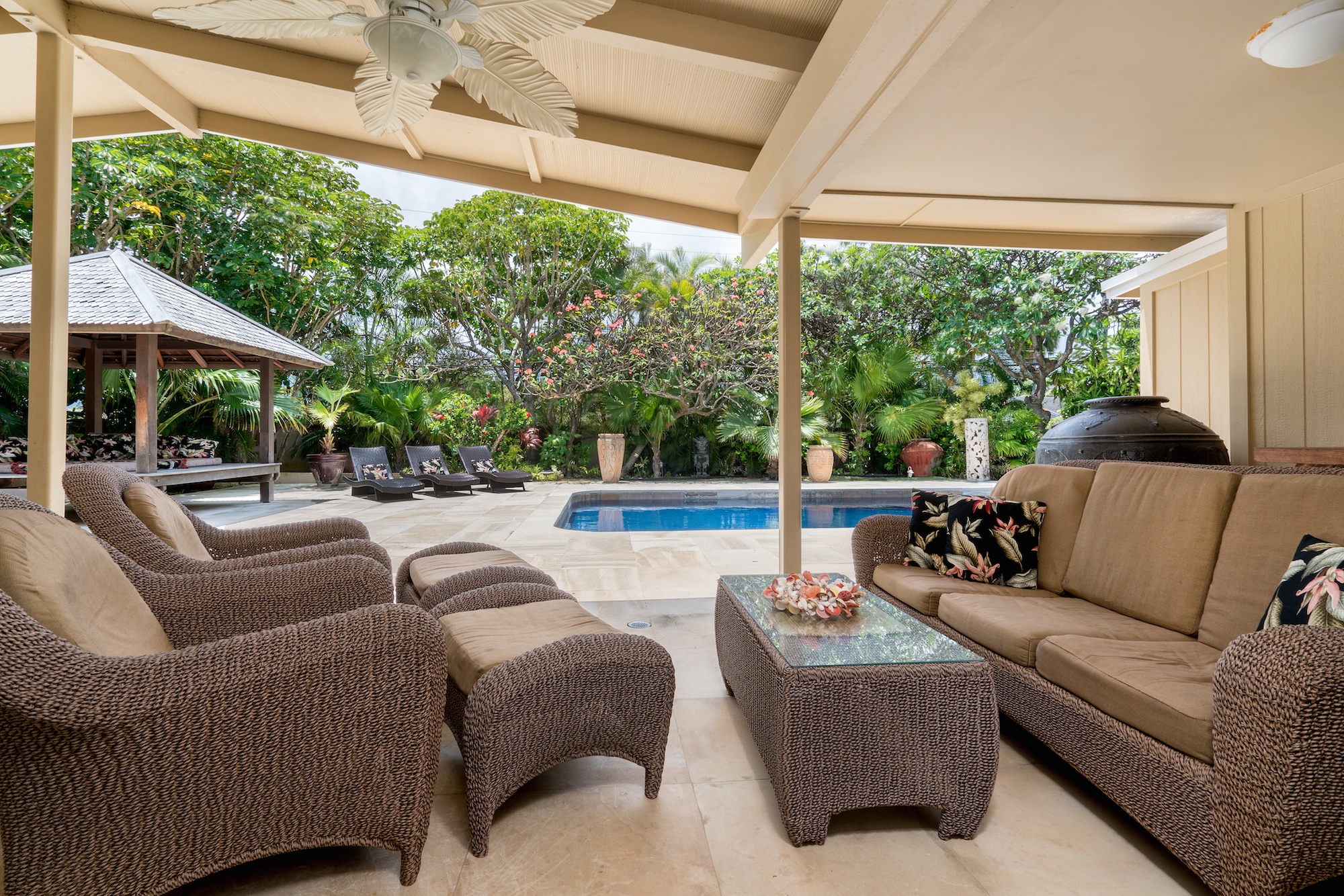
Kailua Beachside – located along one of Oahu’s most sought-after beaches, this long-stay vacation home offers privacy and plenty of outdoor space.
Japanese speakers can read more about the results of the JAL-hosted experiment at the following links. The JAL reporting includes pictures of their trip to Hawaii’s beautiful Big Island.
Mainichi Newspaper: https://mainichi.jp/articles/20191231/k00/00m/020/088000c
JAL Website: https://ontrip.jal.fco.jp/hwi/17339468
WorkMaster: https://www.work-master.net/2020179737
IT Leader: https://it.impressbm.co.jp/articles/-/19300
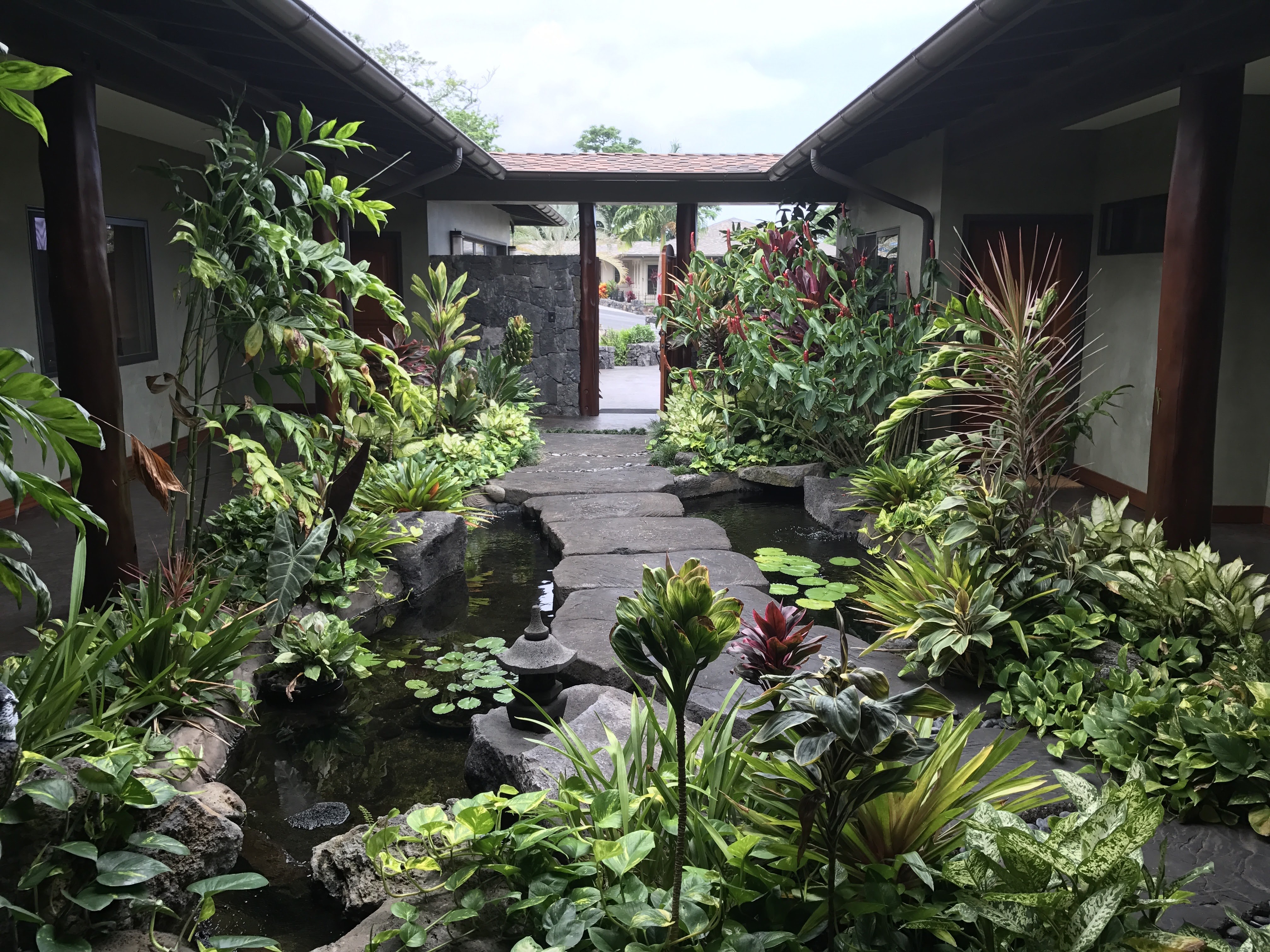
The Ka Lani Mai House in Kailua-Kona, Hawaii,= where JAL and Hawaii Life hosted a remote work holiday to test new ways of working in December, 2019




Leave your opinion here. Please be nice. Your Email address will be kept private, this form is secure and we never spam you.